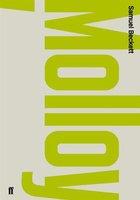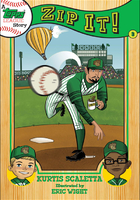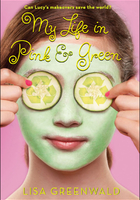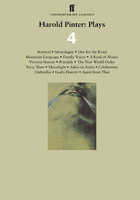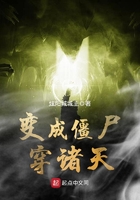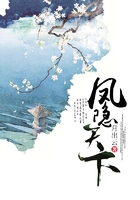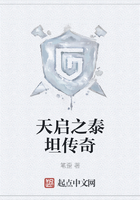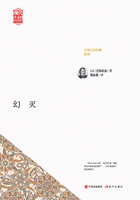"New York to East California,
there's a new wave coming I warn you"
Kim Wilde, "Kids in America"
"Just don't call it 'new wave.'"
Mute Records supremo Daniel Miller to this book's authors
WHAT IS NEW WAVE? In the U.K., home to the majority of the artists featured in this book, new wave was initially code adopted by journalists and disc jockeys eager to be perceived as cool but too nervous to actually use the word "punk" with all its threatening implications.
In America, new wave was an umbrella the size of a circus tent. It covered synth pop, ska, goth, alternative rock, bubblegum, Eurodance, industrial, new romantic, blue-eyed U.K. soul, and electronic dance music. It was a Tower of Babel populated by American bands who wanted to be British, British bands who wanted to be German, and German bands who wanted to be robots. It was an insane asylum whose patients were predominantly ambiguous, untouchable males with sucked-in cheeks, 3-D makeup, and wedding-cake hair.
Perhaps America was overzealous in applying the term to anyone who didn't look or sound like George Thorogood and the Destroyers, but one thing united these two great nations: the shared understanding that the music produced between 1978 and 1985 marked the last golden age of pop.
This wasn't the first time that music was changed by maverick interlopers from another genre. David Bowie and Marc Bolan had both shrugged off the grubby vestiges of hippiedom and tumbled headfirst into glam. But it was the last time it would happen on a scale this massive and this weird. The biggest names who made the greatest hits were a generation of punks who turned themselves into international pop stars.
There are many compelling reasons why the punk proletariat seized the means of production and began poufing up their hair and slapping on the mascara. Here are a few:
1. Boredom and snobbery Once the initial shock value wore off, punk quickly decayed into a shout-y, guitar-banging dead end for its original practitioners. While there was an up-and-coming generation of bands in love with the prospect of forever being stuck in a shout-y, guitar-banging dead end (here's to you, Sham 69 and U.K. Subs), the first batch of British punks, most of whom were affiliated with London art schools, wanted to do everything they could to disassociate themselves with that unwashed mob.
2. Disco didn't suck. Not in the U.K., anyway, where black dance music had always been venerated and gay audiences had always been tastemakers. There, the summer of '77 wasn't just "God Save the Queen" and "White Riot," it was "I Feel Love" and "Staying Alive" too. As one-time punk rockers like ABC, Duran Duran, and INXS proved, disco and punk did not make strange bedfellows.
3. The British music papers You know how Fox News keeps its geriatric constituency in a constant state of paranoia and outrage by making sure every single day is the Worst Day Ever? (See: The War on Christmas! The New Black Panther Party! Death Panels!) The British music press operated in a similar manner. Only, to maintain a competitive edge, they went all out to make sure each week was the Best Week Ever. Punk was a massive shot in the arm for these papers; they had a revolution to write about, and all the main parties were easily accessible. Once the bloom faded from that rose, the papers had to find the next big thing. So every week there'd be a new trend—mod! psychobilly! cowpunk!—and a fresh crop of stars in the making. If this manic approach shone a spotlight on people who had no business listening to music, let alone making it, it also set the stage for 2 Tone, the ascendancy of electronic music, and the rise of Britain's new breed of pop groups. In addition, it created a generation of artists to whom good reviews and music-press credibility still mattered. They wanted to look good, achieve fame, make money, and still be respected. And they saw this as an attainable goal because of …
4. Bowie The voice, the hair, the videos, the clothes. The way he cut up words to construct lyrical collages. The way he juggled genres. Pretty much every musician who drew breath in the eighties owes everything to the career blueprint of David Bowie.
5. Top of the Pops It was a cheaply made, poorly produced BBC show that had been a staple of British Thursday nights since Beatlemania, and it didn't discriminate. If you had a hit, you got to mime it in front of an audience that, at its eighties peak, grew past the 15-million mark. Spandau Ballet, Human League, OMD: All of them saw their cult followings swell and their chart positions soar because of TOTP. And most of them got so big that they could restrict their appearances and rely instead on …
6. Music videos and MTV MTV was originally conceived as a radio station with pictures—a network that sounded like American radio at the start of the eighties. The British bands who fled punk, embraced Bowie and disco, and who were hailed by the music press and appeared on Top of the Pops had no place on such a station. They were unknowns. They did not have significant live followings. The majority of them did not even have U.S. record deals. But the executives behind MTV were in such a mad scramble to get their new cable channel up and running that it never occurred to them to question whether there were sufficient videos by Journey, Loverboy, and Rod Stewart to fill out 24 hours of airtime. As it happened, there were not, which is why the network was forced to shift its gaze to Europe, where weirdly attired groups with indecipherable accents cavorted in overblown mini-movies. City by city, suburb by suburb, adolescent record buyers began pledging allegiance to Duran Duran, Eurythmics, and the Human League. A Flock of Seagulls followed, as did Depeche Mode and Simple Minds.
Were the artists ridiculous? Was the music overproduced? Was the influence of Bowie ubiquitous to the point of being suffocating? Guilty on all counts. But it was also an era of imagination, vaulting ambition, and incredibly memorable songs. The accidental British Invasion of the eighties created a world in which Madonna, Prince, and Thriller-era Michael Jackson thrived.
We're not saying great pop songs aren't written anymore. It's just that a decade of TV talent shows has given us a breed of performer whose only personality characteristics are humility, gratitude, and an undying love for their mommies. And when those humble, grateful performers embark on their careers, any remaining traces of their individuality and autonomy are auto-tuned out of them by superstar producers.
Mock and ridicule the excesses of the eighties if you want, but don't try and deny that the stars of the era had personality. They may have been pretentious, pompous, and absurd, but it was their own pretension, pomposity, and absurdity. They didn't have to bow their heads and nervously wait for the approval of a jaded record executive on a judging panel. Love or hate them, they were their own glorious creations. They were not boy bands. They were not manufactured. They were, for better or worse—worse being Kajagoogoo—the last of the big pop groups.
And their songs are still with us. You might laugh at them. You might yelp your way ironically through them at karaoke (in which case, put this book down. No, don't. Your money's as good as anyone else's. It's just your personality that's lacking). Or you may unabashedly love them. But you never forgot about them.
Neither did we, which is why we wrote this book. We wanted to know the stories behind our favorite songs from our favorite era. To find out, we phoned, Skyped and met up with some of our favorite acts, and we ended up reminiscing about a whole lot more: the good times, the bad times, the hits, the flops, the money, the madness, the fights and, of course … the hair.
Here's what this book isn't: a definitive oral history of the new wave era deserving of its own floor in the Smithsonian. Here's what it is: a random sampling of the decade, a bunch of snapshots summing up songs and artists embedded in our hearts. Your favorite eighties anthem might not be here; some obscure oddity might be in its place. But then, there might be something you haven't thought about in years and can't believe we were smart and resourceful enough to include, i.e., not "The Safety Dance."
Here's how it works: Each chapter begins with an introductory paragraph that puts the artist and song into a broader context—where and how they fit in with the culture, their enduring influence, and so on. Following that, we, the brilliant authors, provide individual commentary. Who are we, and what makes us think our opinions matter? Good question! We are Lori Majewski: American, obsessed past the point of sanity with Duran, Depeche, the Smiths, New Order and … you get the idea. She loves it all, unconditionally, wholeheartedly, and hysterically. We are also Jonathan Bernstein: Scottish, sour by nature, too uptight and suspicious of emotion to declare himself a fan of anybody, but a staunch supporter of the sheer oddball nature of the era. Next, the artists recall their songs, careers, regrets, memories, and journeys. Although we conducted these interviews in time-honored Q&A style, we run the answers as edited monologues. All of the interviews were conducted individually. Finally, each chapter concludes with a "mixtape" in which we recommend similarly themed songs by other artists.
We're all too familiar with the strikes against the eighties: It was the video decade; the visuals took precedence over the music; it was all style over substance. The prosecution rests. We can't refute any of these charges. However, no music video, no matter how gargantuan the budget or drug-crazed the director, can salvage a dud song. And none of the 36 songs in this book are duds! These are the new classics: 36 songs that still have life left in them, that don't sound like relics, and that continue to get airplay and show up on soundtracks, compilations, and reissues. We fought over these 36 songs. We fought even harder over the other 36 we had to leave off the list. And there's another, other 36 we're still grumbling about having had to jettison. Toni Basil, your day will come!JB/LM

